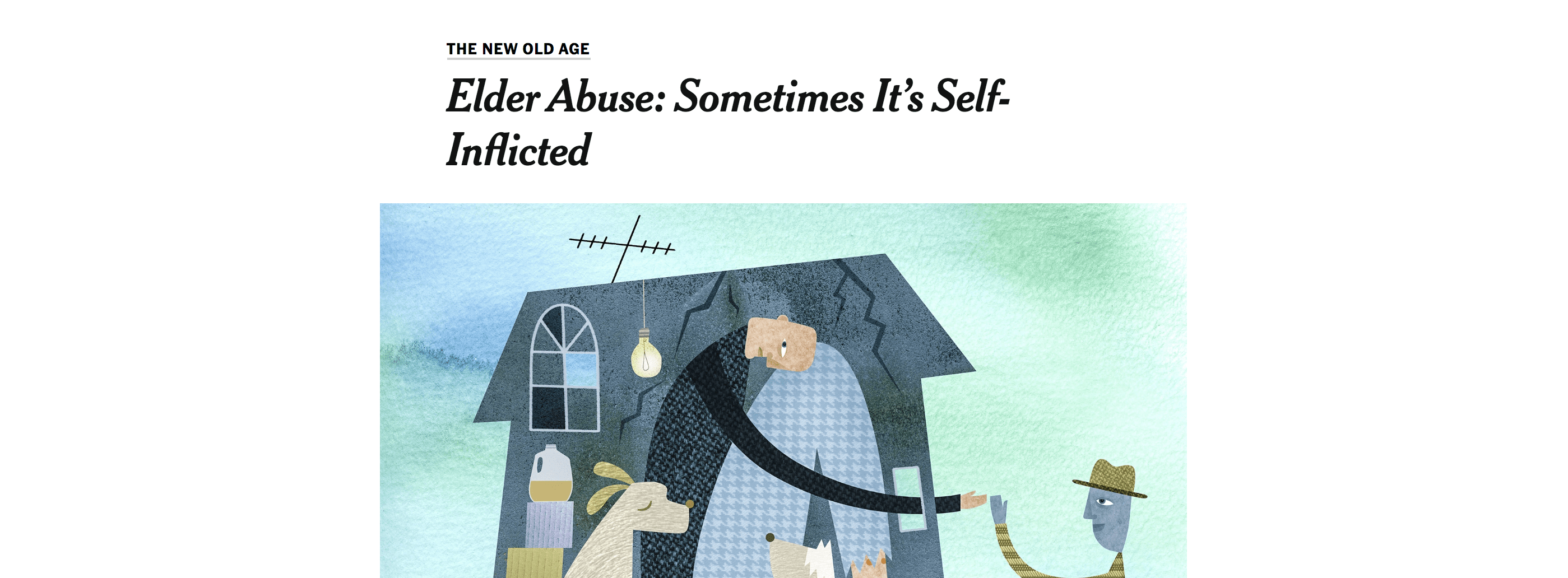

New York Times journalist wrote about elder self-neglect and highlighted Dr. XinQi Dong’s research in a March 2018 article for The New Old Age column.
By Paula Span
March 2, 2018
The man was living alone with his two dogs, in a remote area outside San Antonio, when someone called the Texas state hotline to report that a supposed friend was financially exploiting him. So the state adult protective services agency sent a caseworker to the man’s home.
She found an 86-year-old Vietnam veteran in a dirty, cluttered house full of empty liquor bottles. His legs swollen by chronic cellulitis, he could barely walk, so he used a scooter.
He missed doctor’s appointments. He had the medications he needed for cellulitis and diabetes, but didn’t take them. Though he had a functioning toilet, he preferred to urinate into plastic gallon jugs. He didn’t clean up after his dogs. He wasn’t eating well.
In the Chicago studies, involving more than 4,600 South Side residents over age 65, researchers who conducted in-home interviews found self-neglect unnervingly common. It occurred in 9 to 10 percent of men and 7.5 to 8.5 percent of women, depending on age. Because some residents refused access to their homes, “it wouldn’t surprise me if the prevalence were higher,” Dr. Dong said.
The man was living alone with his two dogs, in a remote area outside San Antonio, when someone called the Texas state hotline to report that a supposed friend was financially exploiting him. So the state adult protective services agency sent a caseworker to the man’s home. She found an 86-year-old Vietnam veteran in a dirty, cluttered house full of empty liquor bottles. His legs swollen by chronic cellulitis, he could barely walk, so he used a scooter. He missed doctor’s appointments. He had the medications he needed for cellulitis and diabetes, but didn’t take them. Though he had a functioning toilet, he preferred to urinate into plastic gallon jugs. He didn’t clean up after his dogs. He wasn’t eating well.
This behavior pointed to an underrecognized problem called self-neglect. It accounts for more calls to adult protective services agencies nationwide than any other form of elder abuse. Yet efforts to identify and help older people who neglect themselves often collide with Americans’ emphasis on self-determination.
“If someone has decision-making capacity, do they have the right to live in squalor?” asked Dr. XinQi Dong, a researcher at the Rush Institute for Healthy Aging in Chicago. “As a society, we want to respect autonomy and independence.”